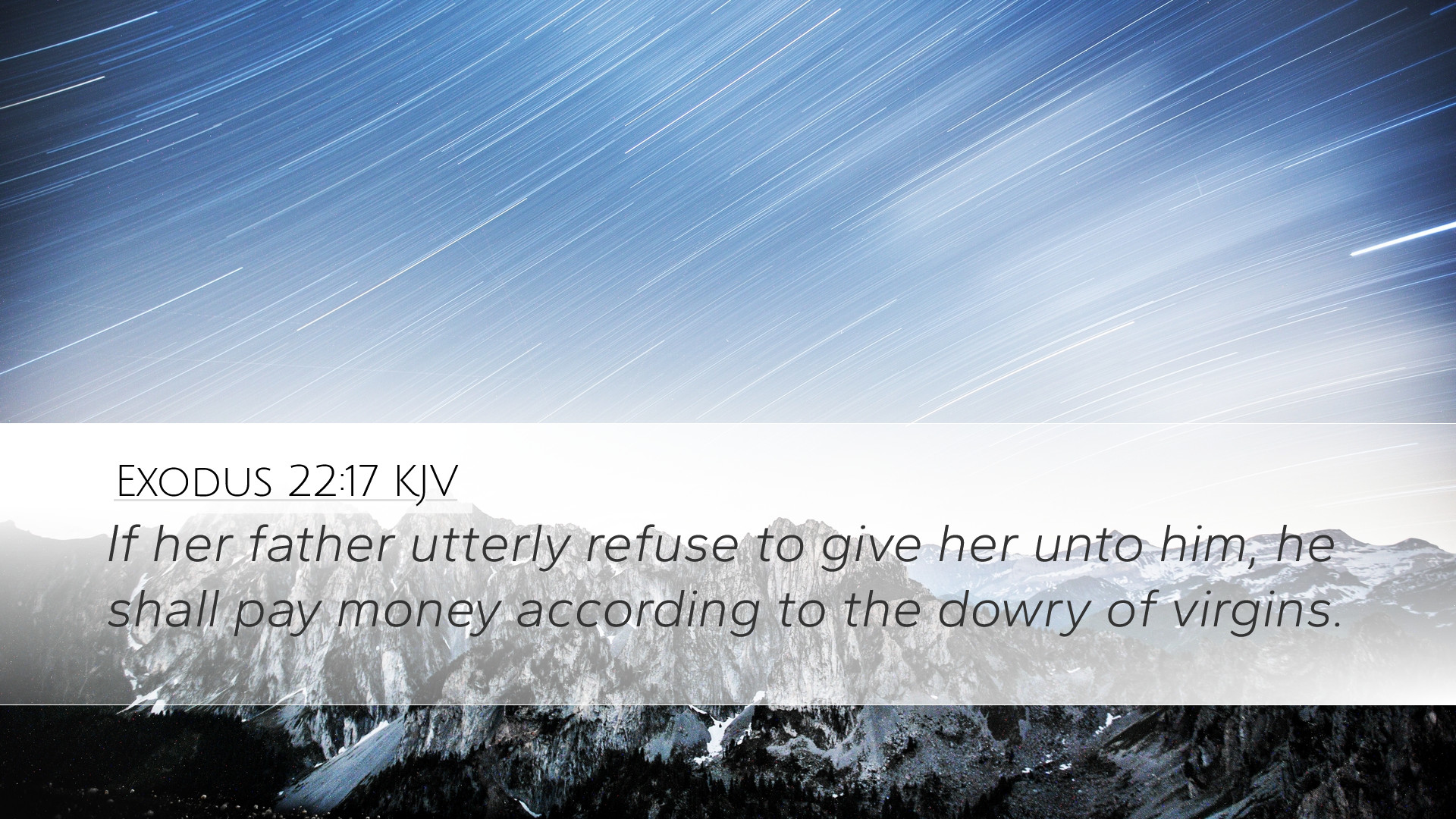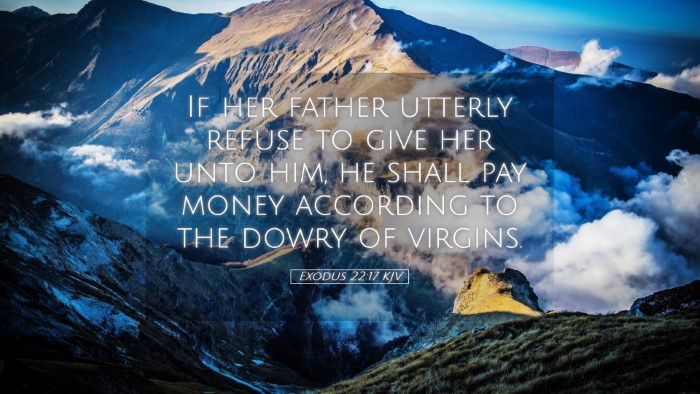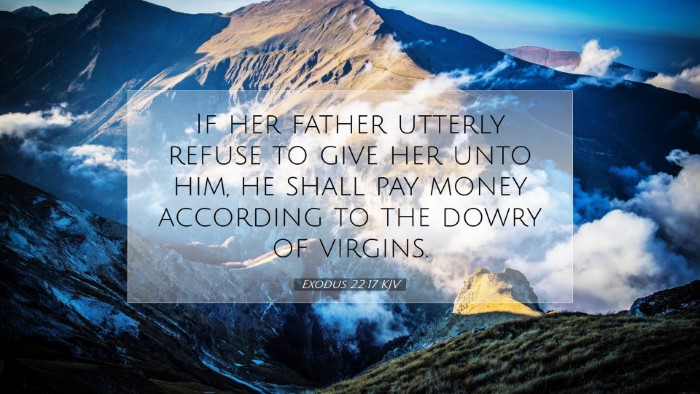Exodus 22:17 Commentary
Verse: "If her father utterly refuse to give her unto him, he shall pay money according to the dowry of virgins."
Introduction
This verse from the book of Exodus addresses the issue of a bride-price or dowry in the context of marriage arrangements. It reflects the cultural, social, and legal dimensions of ancient Israelite society. This commentary seeks to explore the implications of this law, drawing insights from notable public domain commentaries.
Contextual Background
Exodus 22 deals primarily with civil laws and social justice, providing guidelines on issues such as theft, violence, and marital relations. This specific verse accommodates the rights of families, particularly the father as a gatekeeper in the marriage process.
Insights from Public Domain Commentaries
Matthew Henry's Commentary
Matthew Henry emphasizes the protection of familial authority in marriage arrangements. He notes that the father’s consent is inherently important, highlighting that a daughter's value is recognized in the marriage arrangement. Henry writes, “The father stands as a protector of his daughter's honor and dignity.” The provision within this verse not only acknowledges the potential rejection of the marriage offer by the father but also establishes the importance of ensuring that all parties feel their rights and responsibilities are acknowledged in such agreements.
Albert Barnes' Notes on the Bible
Albert Barnes offers a detailed analysis of the term "dowry," explaining its economic and social significance in ancient Israel. He comments, “A dowry functioned not only as a gift but as a form of reassurance for the bride’s family regarding her security and future.” Barnes points out that this law served to prevent injustices and exploitation in relationships, ensuring that a male suitor cannot merely take a bride without offering due compensation. The underlying principle, according to Barnes, is one of fairness and recognition of value: “This law safeguards the rights of women within a patriarchal society by establishing a framework through which her worth is acknowledged.”
Adam Clarke's Commentary
Adam Clarke goes further in examining the implications of this law on societal structures. He acknowledges that the law is framed within a context that emphasizes moral responsibility. Clarke states, “The refusal of the father is a strong statement about the societal norms surrounding marriage, illustrating that such decisions are not taken lightly.” This refusal serves as a means to protect the family unit and the woman's dignity, ensuring that the marriage is entered into with mutual respect and consent. Clarke’s perspective highlights the spiritual dimensions of the law as well; he suggests that the lack of adherence to these societal norms can lead to social discord.
Theological Implications
This verse not only establishes legal guidelines but also reflects profound theological truths about God's concern for justice, respect, and the dignity of individuals. The insistence on fatherly consent in marriage arrangements echoes the broader biblical narrative regarding family, authority, and relational integrity.
Justice and Protection
The overarching theme in this passage is one of justice. The law protects the rights of women by ensuring that they are not treated as mere property. This is particularly significant within the context of ancient cultures known for their patriarchal systems. There is a divine acknowledgment here that every individual possesses inherent worth, which must be respected throughout social transactions, especially in marriage.
Reflection on Modern Applicability
For modern audiences, especially pastors and theologians, reflecting on this text calls for an examination of current marital practices and cultural norms surrounding marriage. The emphasis on mutual consent and familial involvement can indeed find applications in contemporary discussions regarding marriage, marital guidance, and the role of families in such processes.
Conclusion
Exodus 22:17 is a rich passage that integrates legal principles with ethical and theological imperatives. Through the lens of various public domain commentaries, we can appreciate its implications for issues of justice, the value of women, and the acknowledgment of family authority. This text prompts a thoughtful engagement with the complexities of marital relationships, urging today’s readers to uphold the dignity and honor that should permeate all aspects of such unions.


